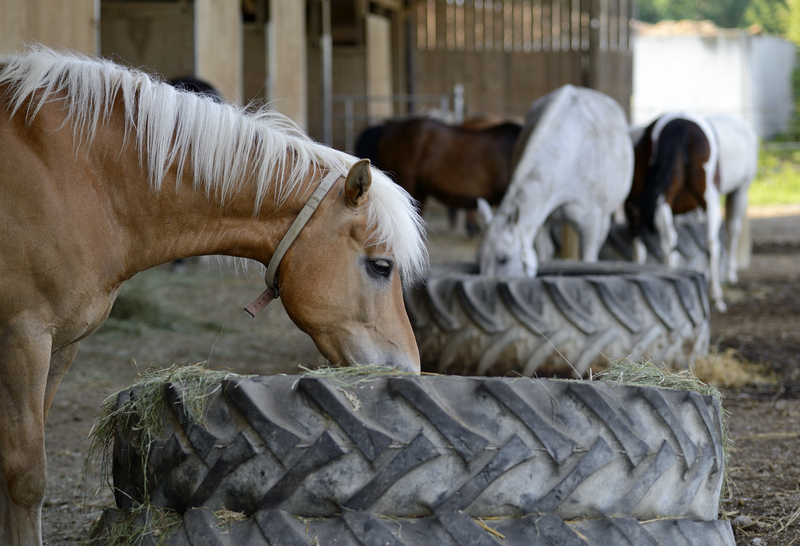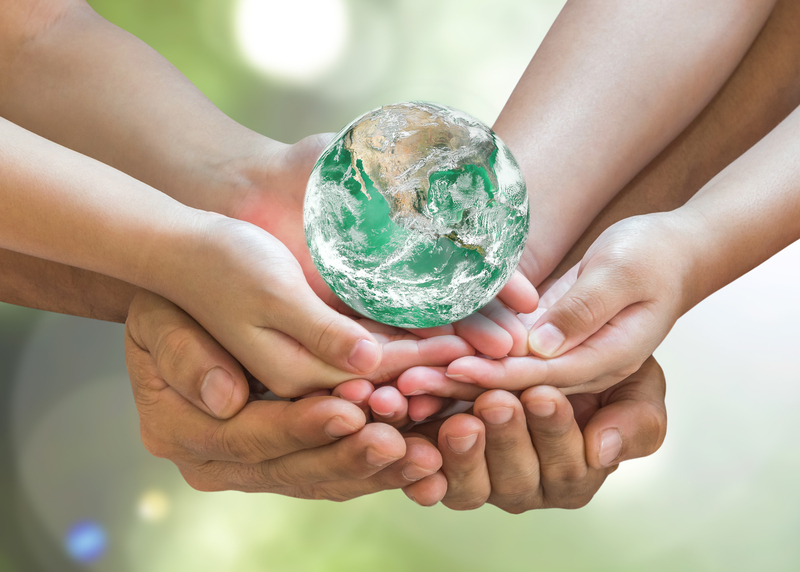Transforming Old Cookware: Your Guide to Recycling
Posted on 29/08/2025
Transforming Old Cookware: Your Guide to Recycling
Are you struggling to figure out what to do with your worn-out pots and pans? Transforming old cookware rather than tossing it in the trash is a win for both your kitchen and the environment. By discovering how to recycle or upcycle cookware, you save space, reduce waste, and may even uncover new DIY projects. In this comprehensive guide, we'll walk you through the most effective, imaginative, and eco-friendly ways to give your old pots and pans a fresh life.
Why Should You Recycle Old Cookware?
Recycling cookware isn't just about decluttering your cupboards. Discarded cookware made of metals, ceramics, and plastic can take hundreds of years to break down in landfills, leaching harmful substances into the soil. By properly disposing or transforming cookware, you're helping to protect the planet while possibly sparking your inner creativity.
Here are a few compelling reasons to recycle cookware:
- Reduce landfill waste: Cookware often ends up dumped, adding to the global waste crisis.
- Recover valuable materials: Metals like aluminum and stainless steel are infinitely recyclable and can be reused.
- Support local recycling: Many regions have robust systems for metal recovery and repurposing.
- Encourage sustainable habits: Recycling inspires environmentally conscious decisions in other areas of life.

Identifying What Can Be Recycled
Before you toss any item into the recycling bin, it's vital to know what your cookware is truly made of. Different materials require unique recycling processes:
1. Metals: Aluminum, Stainless Steel, Iron
- Most metal pans and pots are highly recyclable.
- Cast iron can be donated or fully recycled at scrap metal yards.
- Stainless steel generally has the highest demand at recycling facilities.
2. Nonstick & Teflon Cookware
- Pots and pans with nonstick coatings (such as Teflon) may not be accepted by every facility.
- Check with local centers before disposing.
- Larger scrap yards often require removal of all plastic or rubber handles.
3. Ceramics and Glass
- Ceramic cookware (including dishes) usually can't be recycled with glass.
- Special drop-off programs may exist for broken ceramics.
- Glass bakeware typically needs to be separated from other glass items.
4. Plastic Cookware
- Plastic kitchenware is often derived from composite materials.
- Only specific plastic types are widely recyclable--look for markings.
How to Prepare Your Cookware for Recycling
Proper preparation maximizes the chances your old pans will be effectively recycled. Follow these essential steps:
- Clean Thoroughly: Remove grease, food residue, or rust. Most recycling centers prefer clean metal.
- Disassemble: Separate any nonmetal parts, such as silicone grips, lids, and handles. Metal-only items simplify the process.
- Remove Nonstick Coating: If possible and safe, strip off any Teflon or similar coatings before recycling.
Where to Recycle Old Cookware
Not sure where to take your pans? Here are the top options for recycling pots and cookware:
1. Local Scrap Yards
- Most metal cookware can be dropped off at a local scrap metal yard.
- These facilities often pay you for significant amounts of metal.
- Check if your local facility accepts mixed-material items.
2. Municipal Recycling Programs
- Many cities and counties offer curbside pickup or drop-off for metal objects.
- Check their guidelines to ensure your specific cookware is accepted.
3. Specialty Recycling Centers
- Some centers specialize in hard-to-recycle goods, like nonstick pans or ceramics.
- Use Earth911 or local online directories to locate options.
4. Retailer Take-back Programs
- Major kitchenware brands and retailers (such as Williams Sonoma, GreenPan, or TerraCycle) sometimes offer take-back programs for old cookware.
- This can be an excellent way to ensure proper disposal and even get store credit!
Repurposing and Upcycling: Giving Old Cookware New Life
Beyond traditional recycling, transforming old pots and pans into new, functional, or decorative items can be truly rewarding. Not only does upcycling reduce waste, but it also offers a chance for creative expression and unique projects in your home or garden.
1. Creative Craft Projects
- Garden Planters: Drill drainage holes and convert pots into quirky planters for flowers or herbs.
- Bird Feeders: Shallow pans make perfect bird baths or feeders when mounted on stands.
- Wall Art: Arrange and paint old skillets to create striking, rustic kitchen wall decor.
- Clocks: Add a clock mechanism to the base of a pan for a fun kitchen timepiece.
2. Household Organizers
- Catch-All Trays: Use smaller pans to hold keys, coins, or jewelry on entryway tables.
- Storage Bins: Deep saucepans or Dutch ovens can be used for holding craft supplies.
- Tool Holders: Mount pots on walls in the garage or workshop for tool or paint brush storage.
3. Outdoor Upcycling Ideas
- Candle Holders: Cast iron pans make beautiful bases for outdoor candles and lanterns.
- Fairy Gardens: Create whimsical fairy gardens using worn-out cookware as the landscape base.
- Pet Bowls: Clean, non-toxic cookware can be repurposed as sturdy pet food or water bowls.
Pro Tip: When repurposing cookware, ensure it's non-toxic and has any loose coatings safely removed to avoid accidental ingestion by pets or young children.
Donating Usable Cookware: Giving Back to the Community
If your pots and pans are still in decent shape--just outdated or replaced--consider donating them instead of discarding. Many people setting up first homes or escaping hardship need inexpensive cookware. Here's where to donate:
- Charity thrift shops (Goodwill, Salvation Army, etc.)
- Homeless shelters and women's refuge centers
- Community kitchens and food pantries
- Online marketplaces (Freecycle, Facebook Marketplace--list items for free local pickup)
Tip: Always check with organizations about what items they accept before donating, and clean all cookware thoroughly beforehand.
Sustainable Cooking: Tips to Prolong Cookware Life
Transforming old cookware through recycling or upcycling is fantastic, but prevention is even better. With proper care, your pots and pans will last longer, reducing the need to replace them often.
- Avoid high-heat misuse: Overheating can warp pans and degrade coatings.
- Hand wash whenever possible: Dishwashers can cause wear, especially to nonstick, wooden, or cast iron items.
- Season cast iron regularly: Keeps pans nonstick and rust-free for a lifetime.
- Store carefully: Use dividers or padding to prevent stacking scratches.
- Use proper utensils: Wooden or silicone tools prevent scratches compared to metal implements.

Frequently Asked Questions About Recycling Old Pots and Pans
- Can nonstick pans be recycled?
Often, nonstick pans require special handling. Check with your local recycling center or specialty recyclers before dropping them off. - Is it safe to use broken cookware for upcycling?
Yes, as long as sharp edges are filed down or covered and no toxic coatings can flake off. Always prioritize safety when repurposing. - What if my community doesn't recycle metal cookware?
Search for nearby scrap yards or specialty recycling events. Many metal recyclers accept small household quantities for free or a nominal fee. - Do thrift shops take all types of old cookware?
No, only donate functional, clean items. Avoid donating cracked, flaking, or heavily damaged pans.
Conclusion: Join the Cookware Revolution!
Transforming old cookware isn't just about environmental responsibility--it's an invitation to get creative, save money, and help the community. Whether you're returning pans to the recycling loop, designing charming planters, or donating to those in need, your actions make a tangible difference.
By following this guide, you can confidently recycle your cookware and inspire sustainable choices in your family and neighborhood. The next time you upgrade your kitchen, remember that every pot, pan, and dish has the potential for a second life--as a new kitchen tool, a piece of art, or a cherished item in someone's home. Let's cook up a greener future together!
Latest Posts
The Different Faces of Hazardous Waste Explained
Master the Art of Hosting with Our Pre-party Cleaning Tips
Working Green: Practical Tips for Reducing Office Waste





